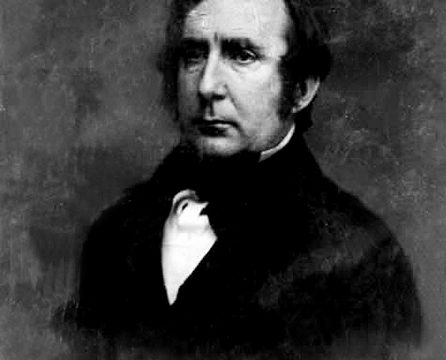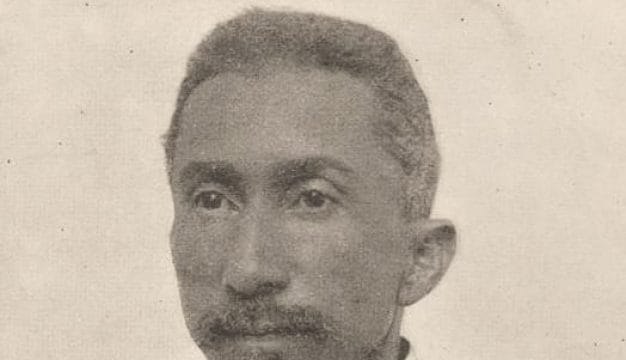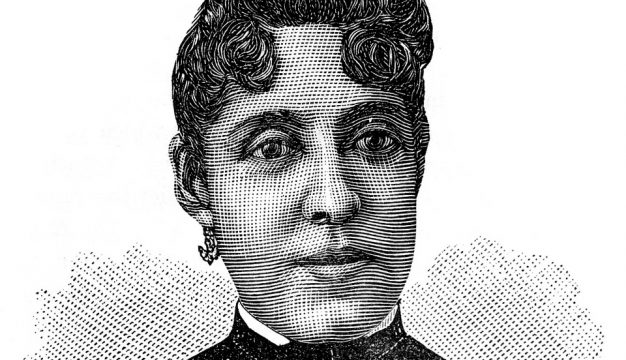McCutcheon v. Federal Election Commission
McCutcheon v. Federal Election Commission (FEC) is the landmark 2014 U.S. Supreme Court case in which the court ruled that campaign donations can be considered a form of "free speech" protected by the First Amendment to the U.S. Constitution. The lawsuit challenged FEC restrictions on the aggregate amount of donations to candidates in federal elections and to national political parties. The suit was filed by Jefferson County resident Shaun McCutcheon and the Republican National Committee on the grounds that the regulations limited the number of candidates individuals could support, thereby denying donors their constitutional rights to free expression and free association.
McCutcheon, the initial plaintiff in the case, is the founder and CEO of Coalmont Electrical Development, a mining-related engineering firm in McCalla, Jefferson County. A member of the Jefferson County Republican Party Executive Committee, McCutcheon has supported Republican candidates and the national party for many years and believed that his rights of free expression and free association were restricted by the two-year limits on political donations. At the time of the lawsuit, donations to federal candidates and political parties were limited in two ways: contributors were capped at $2,600 per donation and also limited to a total of $46,200 in aggregate donations to federal candidates and $70,800 to federal political action committees and national political parties in a given two-year period. McCutcheon's lawsuit took aim at the second restriction. He argued that he should be able to donate the maximum amount to as many candidates as he wished but that the aggregate restrictions prevented him from doing so. As he noted in an interview in the political newspaper Politico, he saw no reason to believe that by donating to 18 candidates rather than the capped 17, he would be increasing corruption in the electoral process. He further argued that the limits favored incumbents, thereby giving them an advantage over challengers.
The restrictions challenged in McCutcheon's case trace their origins to the 1971 Federal Election Campaign Act (FECA), enacted to bring transparency to the political donation process. In 1972, campaign contribution scandals surfaced following the presidential election. In response, Congress amended FECA in 1974 to establish limits on contributions by individuals and political action committees (PACs) in a single calendar year and created the Federal Election Commission (FEC) in 1975 to enforce the rules. In 1976, FECA was challenged in the Buckley v. Valeo case in which the Supreme Court struck down limits on campaign spending but upheld limits on individual contributions to campaigns, including limits on the total amount of donations by any one person to candidates or political parties in one election cycle. In 2002, the Bipartisan Campaign Reform Act (BCRA) extended the aggregate donation period to two years and adjusted the total donation amounts for inflation but essentially maintained the spending limits.
In 2010, the Supreme Court signaled a willingness to revisit restrictions on campaign financing restrictions donations with its decision in Citizens United v. FEC, which extended first amendment rights to corporations, unions, and other legally organized entities and removed prohibitions on their political spending. Encouraged by this decision, on June 22, 2012, McCutcheon and the Republican National Committee filed suit against the FEC in the U.S. District Court for the District of Columbia, where the agency resides. In July, the District Court agreed to hear the case, and in September, a three-judge panel handed down a unanimous decision in favor of the FEC. The panel ruled that the government was justified in maintaining the aggregate limits on donations in the interest of combatting corruption and preventing donors from circumventing individual contribution limits. On October 9, the plaintiffs filed an appeal with the U.S. Supreme Court, which agreed to hear the case in February 2013. The case itself came before the court on October 8, 2013.
The appellants were represented by constitutional lawyer Erin E. Murphy, who argued that the aggregate limit on donations violated the guarantees of the First Amendment and was therefore unconstitutional. She also stated that the restrictions served no compelling purpose in reducing corruption in the electoral process because the donation amounts to individuals or political organizations were already limited to $2,600 (now $2,700) per entity per election. Thus, according to Murphy, it made no difference if that amount was given to 17 (the aggregate limit) or 18 entities. Without the aggregate limit, an individual could give up to $3.5 million to candidates and political organizations in a given election year. The FEC was represented by U.S. Solicitor General Donald B. Verilli Jr., who argued that the aggregate limits did, in fact, counter corruption. For example, he noted that they prevented large sums of money, such as the entire $3.5 million that a single individual could give in a cycle, from being funneled to the national party and traded among political entities.
In a split decision handed down on April 2, 2014, the Supreme Court decided in favor of the appellants and struck down the aggregate restriction on donations. The court was sharply divided, however, with Chief Justice John Roberts and justices Samuel Alito, Anthony Kennedy, and Antonin Scalia finding in favor of the appellants. Justice Clarence Thomas produced a separate opinion that supported the favorable decision but declared all campaign contribution limits unconstitutional; his concurrence tipped the decision in favor of the appellants. The dissenting justices were Stephen Breyer, Sonia Sotomayor, Elena Kagan, and Ruth Bader Ginsburg. They argued, in a statement written by Breyer, that removing aggregate restrictions on the heels of the Citizens United decision would open up opportunities to funnel millions of dollars to political parties. Public reaction also split along political and ideological lines, with opponents decrying the decision as an invitation to rampant corruption and supporters praising the finding's expansion of rights in political donations. The McCutcheon decision has generally faded from political discussions, with much more attention being focused on Citizens United, particularly during the 2016 presidential campaign. McCutcheon himself has since formed the Conservative Action Fund, a political action committee that supports conservative candidates, and has become a spokesman in favor of removing all restrictions on campaign donations.
Further Reading
- Collins, Robert, and David Skover. When Money Speaks: The McCutcheon Decision, Campaign Finance Laws & the First Amendment. Chicago: Top Five Books, 2014.
- Jacobs, Ben. "McCutcheon v. FEC: Big Money Fights Back at the Supreme Court." The Daily Beast, October 9, 2013; http://www.thedailybeast.com/articles/2013/10/09/mccutcheon-v-fec-big-money-fights-back-at-the-supreme-court.html.
- McCutcheon, Shaun. "Donation Caps Hurt Democracy." Politico, October 6, 2013; http://www.politico.com/story/2013/10/mccutcheon-how-campaign-spending-caps-hurt-american-democracy-097834.



